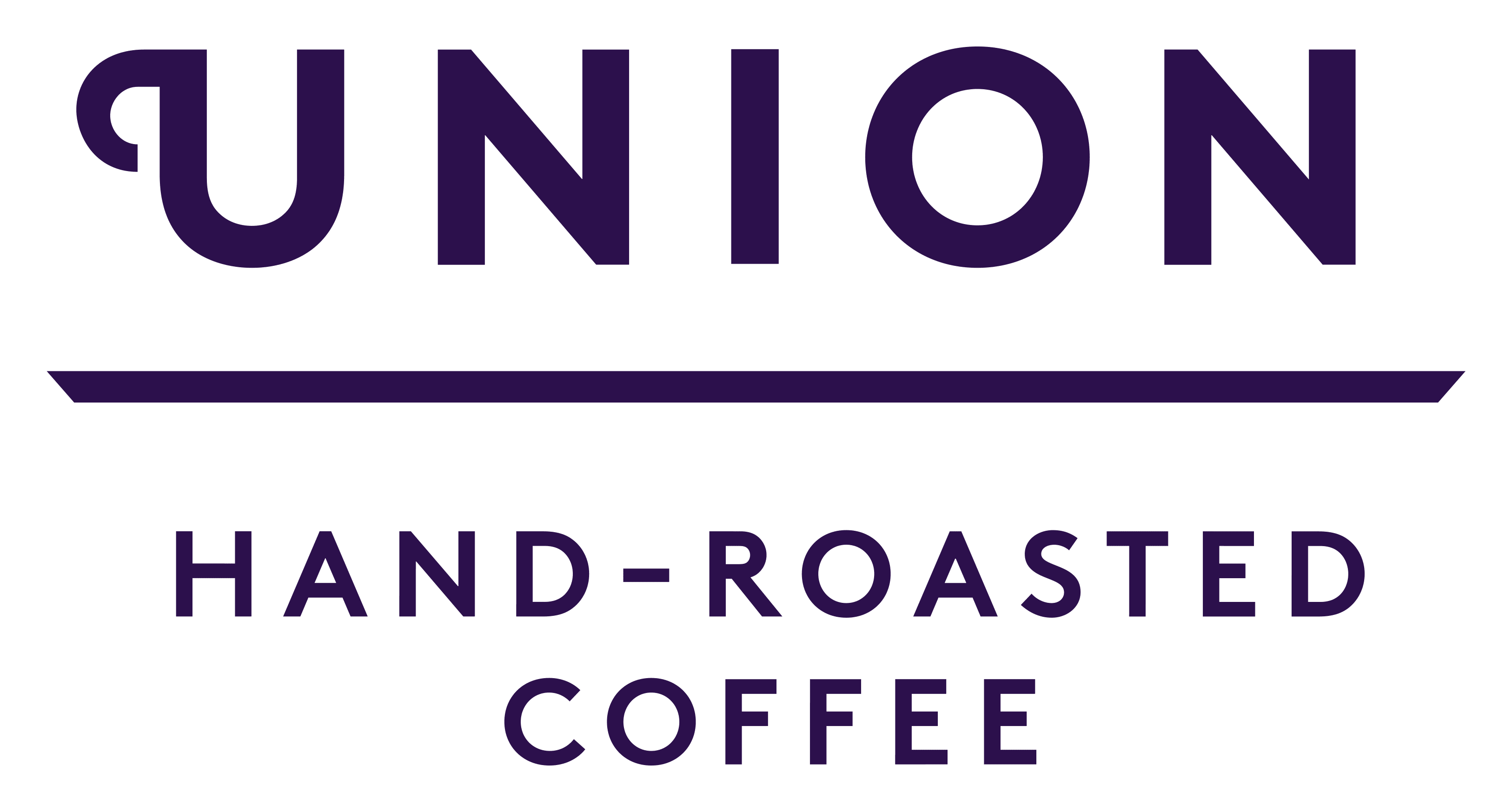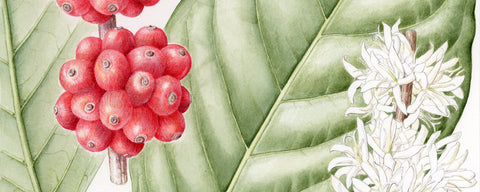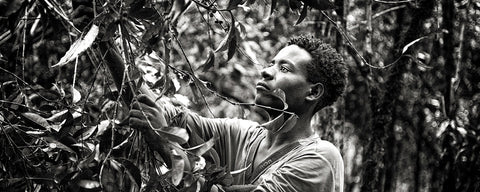Winding up through the highlands of Ethiopia into the heights of 1,925 metres above sea level, you’ll find the Yayu Wild Forest. Yayu is the home of our current and very special microlot coffees: Wutete and Achibo. Both are named after the primary cooperatives that grow, pick and process the coffees. To celebrate their release, we wanted to share an update about the work that we have been doing with these coffee-growing communities.
Back in 2014, together with Royal Botanic Gardens, Kew and Ethiopia Coffee Forest Forum (funded by the Darwin Initiative), we produced a three-year plan with goals to create more resilient and sustainable livelihoods in the coffee-growing communities in Yayu. The creation of these livelihoods would, in turn, aim to also protect Yayu’s natural biodiversity. Although the official project came to an end this April 2018, Union is continuing the work with the cooperatives in Yayu. The delicious coffees from the hills of Ethiopia will not stop here!
If you’d like to read about the project’s aims and the importance of Yayu in the production of Coffee arabica – do give our previous blog a quick read.
So – what has happened in the past three years? Jeremy, our co-founder, and Pascale, our head of sustainable coffee sourcing, have been working closely with five co-operatives in the Yayu region, visiting between three to four times per year. The foundations for high-level coffee farming have been set out through assistance in improving the practices in the production stages: pulping, sorting and dry milling. This also includes instigating a relationship for the producers with a more quality focussed dry milling company who are better able to help them access the quality market internationally. This is also teamed with the education of farmers on the processes as well as maintenance of the equipment from Graciano Cruz, one of our producer partners, during the three year project.
One of the central focuses of this year has been how to incentivise farmers to pick the mature cherries only. Strip picking (picking both ripe and unripe cherries at the same time) is fast and cost-saving. Selective harvest picking only the mature cherries is slow, time-consuming and expensive. As coffee fruits rarely mature evenly, a selective harvest might require passing the same tree two to three times.
The issue with this is that the farmer might not see a direct benefit of the selective picking. This might be because the cooperative does not reward quality. It might also be because there is not a full understanding of the importance of a good harvest in obtaining and maintaining access to markets that are willing to pay price premiums. Forever wanting to improve on the systems currently in place, we decided that the next step would be to incentivise the harvest of mature cherries which would equate to better-quality coffee and consequentially a more direct financial benefit to pickers.
The idea behind it is simple. If more than 5% of the cherries are unripe this will affect the taste of the coffee (green, astringent) which will subsequently affect the farmer’s profit. Mature cherries will have a lower defect (reject) rate and fewer cherries are needed to produce a kilo of export coffee.
But how can you easily measure 5% and have that understood by all parties? We’d spotted a method used on other farms worldwide, so thought we’d give it a go too:
One Sunday afternoon, armed with a drill and some planks of wood, Jeremy designed a couple of prototypes. These prototypes we took to Yayu which we explained to members of the five cooperatives. Their feedback was positive, and they wanted to give it a try this harvest – which has just started!
How does it work? Each board has 100 holes and the collector needs to take a representative sample of the cherries (a few handfuls) – then count the immature cherries in the sample. The board has 100 holes – so 1 cherry represents 1% (20 cherries represents 20% etc). If the farmer delivers 95% or more cherries that are ripe, a premium is paid (normally payment of premium takes place after the coffee is exported). If there are more than 5% unripe cherries, the farmer will receive no premium and the coffee will be stored separately from those cherries with perfect ripeness.
The idea is to create an incentive for the farmers to either pick the mature cherries or to spend some time sorting the cherries before delivering them to the cooperative. With this incentive in mind, the quality of coffee cherries should increase: meaning less waste, more profit for the farmer, and better-tasting coffee.
As we speak, the system is being implemented in Yayu in the five cooperatives. Our next trip to Yayu will be in the new year and we’re very excited to see how this process is working with the current harvest. Do look out for our next blog!
Written by Helena Brown, Social Media Executive
January 2019






